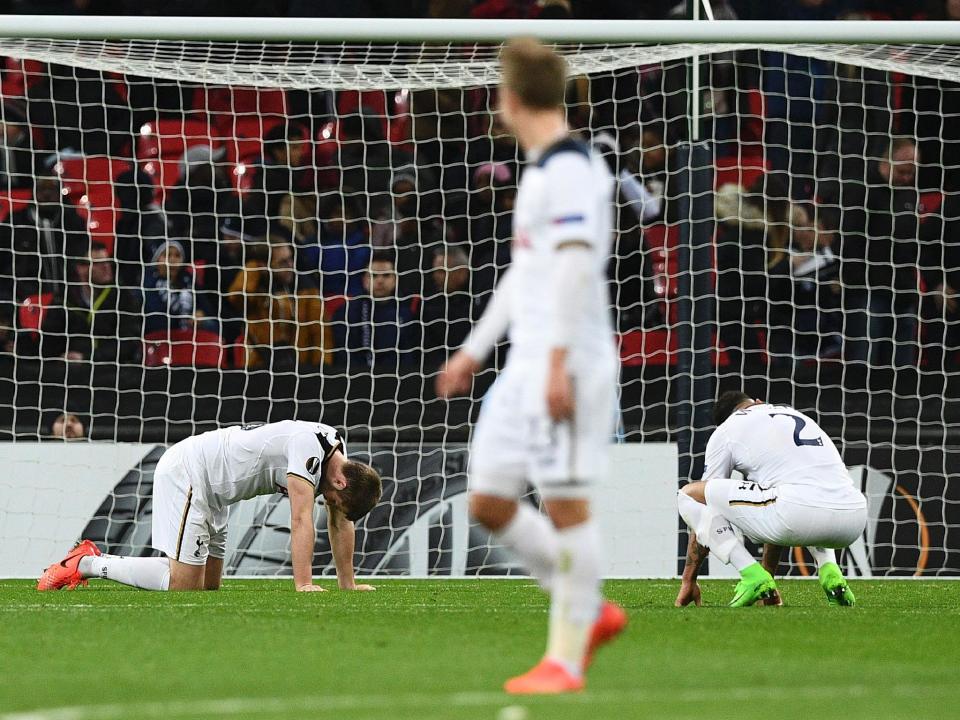Why Tottenham are still underperforming in Europe and what they must do to improve

It was glaringly clear last night just how much Tottenham Hotspur wanted to beat KAA Gent and reach the last-16 Europa League. That is why they started the first half so fast, or the second half, even with 10 men. When Jeremy Perbet scored the goal that killed the tie, the Spurs players collapsed to the ground. They were devastated to be out of Europe.
It has not always been like this. Last season Spurs threw in the towel when they got to Borussia Dortmund in the last-16, playing a second-string team which was unsurprisingly taken to pieces at the Westfalenstadion. They year before they went out with little fanfare to Fiorentina at the last-32, with their own eyes on the League Cup final.
So it is not unfair to ask, as the last-16 draw happens without them: if Spurs now care about European football, why are they still not very good at it?
That is the only conclusion to reach after this season’s dismal European season ends. They played eight games and won just two, both against a very limited CSKA Moscow side. Against Monaco, Bayer Leverkusen and Gent they achieved nothing at all.
Tottenham are clearly a good team. They could have won the Premier League last season and are currently third, and still in the FA Cup. They could well be in next season’s Champions League too, but that will not count for much until Spurs solve their European problem.
Spurs do not play intelligently enough to succeed in Europe. Their aggressive high-pressing style is thrilling to watch in the Premier League but to succeed in Europe you need to be able to slow it down, be patient, even to sit back without the ball. You need to be able to manage the tempo of a game even when it is going against you.
But that is not how Spurs play. Their default setting is to play at 100mph. While they have got better at seeing out leads this year, they clearly still struggle against the more tactically intelligent opposition they face in Europe. That was the clear lesson of their Wembley defeats to Monaco and Leverkusen, which were about far more than just the unfamiliarity of a new ground. They were evenings when Spurs’ style of play was shown up. A one-paced team whose pace is quick is still one-paced.
Perhaps this is an inevitable problem for a team full of young English players short on experience at the elite level. It is not an unfamiliar failing either. Manchester United struggled in Europe in the 1990s before their eventual triumph in 1999.

Even then, United only really consistently cracked the Champions League with Sir Alex Ferguson’s final great team. They reached the semi-finals in 2007, they won it in 2008, lost the final in 2009 and again in 2011. That was when a talented young team was directed by new signing Michael Carrick, who arrived in 2006. He guided United towards three consecutive Premier League titles as well as helping them to play a slower cleverer game in Europe.
That United team was better than this Spurs side, but the lessons remain the same. Success in European football demands intelligence, flexibility and an ability to play a different game. Spurs’ furious energy and ambition makes them the best team in England to watch on their day. But at this level that is not enough. Unless they change, do not expect anything different next year.

